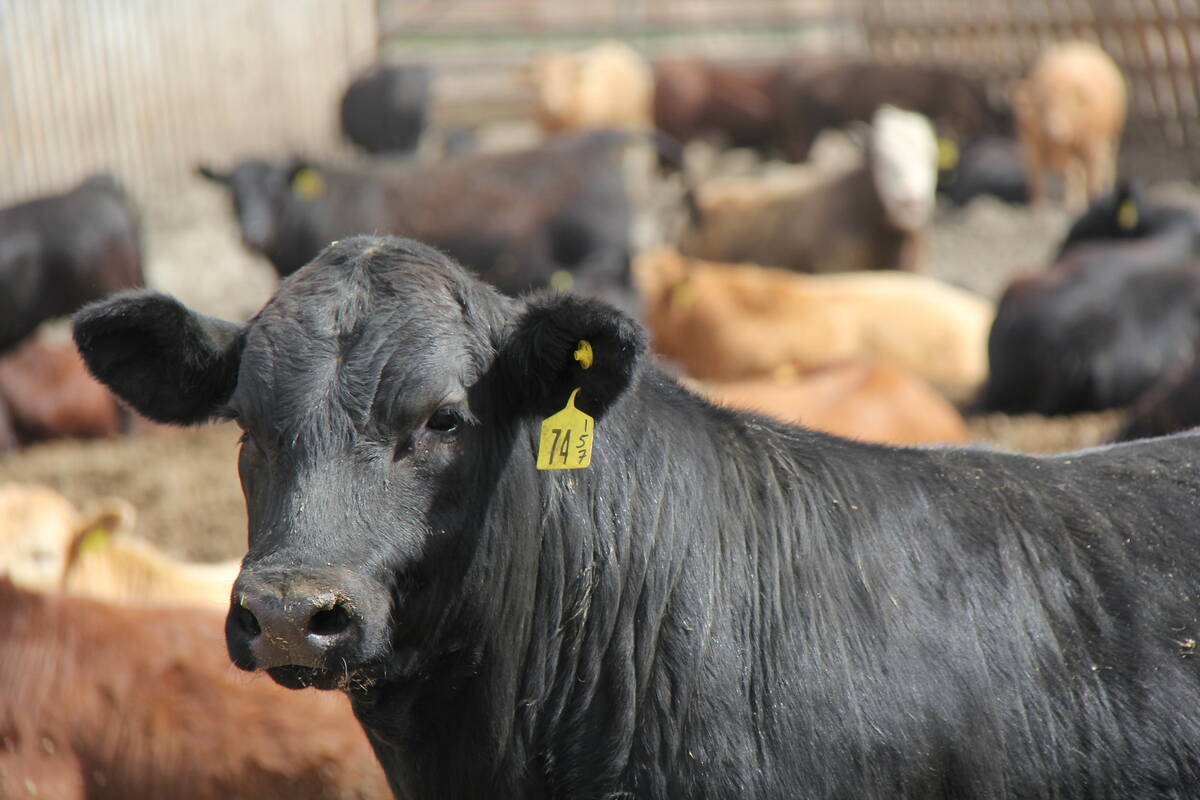The ratification process can get underway on a Canada/European Union free trade deal now that negotiations have formally concluded, the federal government announced Friday.
Prime Minister Stephen Harper, European Council president Herman Van Rompuy and European Commission President Jose Manuel Barroso released the negotiated text of the Canada-EU Comprehensive Economic and Trade Agreement (CETA) in English and French on Friday in Ottawa.
The parties announced last month they had settled on the deal’s final text, pending legal review. [Related story]
Read Also

U.S. livestock: Cattle steady ahead of feed report
Cattle futures on the Chicago Mercantile Exchange held close to unchanged on Thursday, with the bias lower in the most…
The federal government reiterated Friday that the deal “will provide Canada with preferential market access to the largest and most lucrative integrated market in the world, a market of more than 500 million consumers that generates almost $18 trillion in economic activity annually.”
The government cited a Canada/EU joint study which forecasts that a trade pact could boost Canada’s income by $12 billion a year and bilateral trade by 20 per cent.
Canada’s ag exports alone to the EU between 2011 and 2013 were valued at $2.5 billion per year on average, led by wheat (including durum), soybeans and other oilseeds and canola oil.
Absent a deal, Canadian agricultural exports face EU agriculture tariffs averaging 13.9 per cent, the government said.
From the ag and agrifood sectors’ perspective, CETA’s elimination of tariffs — and provisions to deal with the EU’s “non-tariff measures,” such as those related to animal and plant health and food safety — are expected to be of greatest benefit to Alberta, Saskatchewan, Manitoba, Ontario and Quebec, the government said Friday.
When the deal comes into force, almost 94 per cent of EU agricultural tariff lines are to become duty-free, including durum wheat (up to $190 per ton), other wheat (up to $122 per ton), and oils such as canola oil (3.2 to 9.6 per cent), the government said.
The Canada/EU deal also sets up a mechanism under which Canada and the EU will co-operate to discuss and “attempt to prevent or resolve non-tariff barriers that may arise” on ag exports.
While the government’s commitment to securing the deal is appreciated, Canola Council of Canada president Patti Miller said members remain “cautious, because the value of the agreement to Canada’s canola sector will depend on the EU living up to its commitment to ensure timely approvals of biotechnology products.”
Upon implementation, expected in early 2016, Miller said the deal is expected to provide opportunities for canola oil exporters to boost sales by up to $90 million a year.
Also, she said, “our industry is also encouraged by commitments to find solutions to trade uncertainty and disruption related to biotechnology” and that the EU has agreed to approve new traits “as quickly as possible.”
Duty-free access
The government reiterated Friday the deal will also provide “new market access opportunities” for Canadian beef and pork, which the government said “will now benefit from preferential treatment in the EU.”
Specifically, for Canada’s beef sector, CETA will produce duty-free access for 64,950 tonnes, the Canadian Cattlemen’s Association said Friday. Of this, 50,000 tonnes — 35,000 tonnes of fresh/chilled beef and 15,000 tonnes of frozen beef — are reserved for Canada.
Canada will also see the 20 per cent duty on the existing 14,950-tonne “Hilton quota” shared with the U.S. reduced immediately to zero, the CCA said, and Canada will also still have access to the existing shared duty-free quota for high-quality grain-fed beef.
“Combined with the new access, there is a potential to reach more than 100,000 tonnes per year of duty-free access for Canadian beef,” the CCA said.
Live cattle, genetics and most beef offals and processed beef products will benefit from “immediate” unlimited duty-free access, the association added.
Canadian Pork Council president Jean-Guy Vincent said last month that Canada’s current exports of pork cuts to the EU are “virtually non-existent… due to tariff and non-tariff barriers to entry into the EU market which CETA will now address.”
The Canadian Meat Council said Friday that CETA will give Canadian pork producers a quota volume equivalent to 81,011 tonnes of pork cuts.
The meat council also noted CETA provides for duty-free exports of 3,000 tonnes of Canadian bison meat, unlimited duty-free exports of Canadian horsemeat and unlimited duty-free exports of Canadian prepared meats.
“Changes nothing”
Critics of the trade pact also noted Friday’s announcement — among them Canada’s National Farmers Union, which warned “now that the full agreement is available for all to see, it will become clear that the facts do not support the government’s spin.”
“While the government claims CETA gives farmers access to (EU) markets, CETA changes nothing regarding Europe’s commitment to avoiding food made from genetically modified crops, beef raised with hormones and pork raised with growth promoters,” Ann Slater, the NFU’s vice-president for policy, said in a release.
Meanwhile, she said, “CETA takes away the equivalent of all of Nova Scotia’s milk production from Canadian dairy producers by allowing increased tariff-free imports of cheese from the heavily-subsidized EU. CETA gives Europe a significant part of our market, and Canadian farmers get empty promises in return.” [Related]
Intellectual property rights measures in CETA are also “deeply concerning,” Terry Boehm, chair of the NFU’s seed and trade committee, said in the same release.
The deal, he said, “commits Canada to give seed companies the ability to ask the courts to seize the assets and equipment of farmers for alleged infringement on patent rights or plant breeders’ rights even before the case is heard.”
Slater said the deal also gives EU-based companies the right to compete for all local contracts above “fairly low” thresholds, thus weakening any “buy local” food procurement policies put in place by Canada’s various levels of government, which would include food for schools, hospitals and/o0r prisons.
Bloc Quebecois MP Claude Patry last week criticized the government for not yet confirming compensation for Quebec’s dairy sector against losses it could incur due to increased tariff rate quotas for EU cheeses under CETA.
Patry said the federal government last November budgeted $280 million in CETA-related compensation for Newfoundland’s fisheries, but the government’s previous pledge to indemnify Quebec cheese producers has so far only been “nothing but wind.” — AGCanada.com Network


















